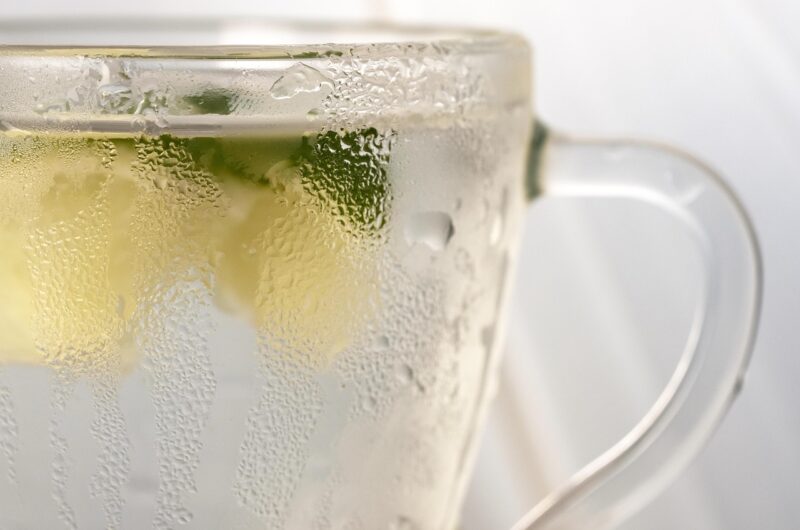In recent years, the beverage industry has seen a surge in health-focused drinks, with prebiotic sodas emerging as a popular choice among health-conscious consumers. Unlike traditional sodas, which are often laden with sugar and artificial ingredients, prebiotic sodas are marketed as gut-friendly alternatives that combine the refreshing fizz of soda with ingredients designed to support digestive health. But what exactly are prebiotic sodas, and do they live up to the hype? This article explores the science behind prebiotic sodas, their potential health benefits, associated risks, frequently asked questions, and recent research studies on their efficacy.
Prebiotic sodas are carbonated beverages infused with prebiotic fibers or compounds that promote the growth of beneficial gut bacteria. These drinks aim to offer a healthier alternative to conventional sodas by providing functional ingredients that support the microbiome—the community of microorganisms living in the digestive tract. With growing awareness of the gut-brain axis and the role of gut health in overall well-being, prebiotic sodas have gained traction as a trendy, functional beverage.
What Are Prebiotics?
To understand prebiotic sodas, it’s essential to first grasp the concept of prebiotics. Prebiotics are non-digestible food components, typically fibers or carbohydrates, that serve as “food” for probiotics—the beneficial bacteria in your gut. Unlike probiotics, which are live microorganisms found in foods like yogurt or supplements, prebiotics are not living organisms. Instead, they pass through the digestive system undigested until they reach the colon, where they are fermented by gut bacteria, promoting their growth and activity.
Common prebiotic compounds include:
- Inulin: A type of soluble fiber found in plants like chicory root, onions, and garlic.
- Fructooligosaccharides (FOS): Naturally occurring sugars found in fruits and vegetables.
- Galactooligosaccharides (GOS): Derived from lactose, often found in dairy-based products.
- Resistant Starch: A type of starch that resists digestion in the small intestine and ferments in the colon.
Prebiotic sodas typically incorporate one or more of these compounds into their formulas, often in combination with low-calorie sweeteners, natural flavors, and carbonation to create a palatable, health-focused drink.
How Do Prebiotic Sodas Work?
Prebiotic sodas work by delivering a dose of prebiotic fibers in a convenient, drinkable form. When consumed, the prebiotics pass through the stomach and small intestine without being broken down. Once they reach the colon, gut bacteria ferment these fibers, producing short-chain fatty acids (SCFAs) like butyrate, acetate, and propionate. These SCFAs provide energy for colon cells, reduce inflammation, and support a balanced gut microbiome.
By fostering a healthy gut environment, prebiotic sodas aim to offer benefits beyond basic hydration. Manufacturers often market these drinks as supporting digestion, immunity, and even mental health, given the emerging research on the gut-brain connection. However, the effectiveness of prebiotic sodas depends on the type and amount of prebiotics used, as well as individual differences in gut microbiota.
Health Benefits of Prebiotic Sodas
The potential health benefits of prebiotic sodas stem from the prebiotics they contain and their impact on gut health. Below are some of the key benefits associated with prebiotic consumption, which may extend to prebiotic sodas when consumed as part of a balanced diet:
1. Improved Gut Health
Prebiotics promote the growth of beneficial bacteria, such as Bifidobacteria and Lactobacilli, which are essential for a healthy gut microbiome. A balanced microbiome can improve digestion, reduce bloating, and alleviate symptoms of conditions like irritable bowel syndrome (IBS). Studies suggest that prebiotics may enhance gut barrier function, preventing harmful substances from leaking into the bloodstream.
2. Enhanced Nutrient Absorption
A healthy gut microbiome can improve the absorption of essential nutrients, such as calcium and magnesium. Prebiotics may also increase the bioavailability of certain minerals, contributing to better overall nutrition.
3. Boosted Immunity
The gut houses a significant portion of the body’s immune system. By supporting beneficial bacteria, prebiotics can strengthen immune function, potentially reducing the risk of infections and inflammation-related diseases.
4. Reduced Inflammation
SCFAs produced during prebiotic fermentation have anti-inflammatory properties. These compounds may help reduce chronic inflammation, which is linked to conditions like heart disease, diabetes, and obesity.
5. Potential Mental Health Benefits
Emerging research on the gut-brain axis suggests that a healthy gut microbiome may positively influence mood and cognitive function. Prebiotics may help regulate stress responses and reduce symptoms of anxiety or depression, although more research is needed to confirm these effects.
6. Weight Management Support
Some studies indicate that prebiotics can increase feelings of fullness and reduce appetite, potentially aiding in weight management. By improving gut health, prebiotics may also regulate metabolism and fat storage.
7. Blood Sugar Regulation
Prebiotics may improve insulin sensitivity and stabilize blood sugar levels by modulating gut bacteria and reducing inflammation. This could be particularly beneficial for individuals at risk of type 2 diabetes.
While these benefits are promising, the amount of prebiotics in a single can of soda is typically lower than what’s used in clinical studies. For significant health impacts, prebiotic sodas should be consumed as part of a diet rich in prebiotic and probiotic foods, such as fruits, vegetables, whole grains, and fermented foods.
Risks and Considerations
While prebiotic sodas offer potential health benefits, they are not without risks or limitations. Consumers should be aware of the following considerations:
1. Digestive Discomfort
Prebiotics are fermented in the colon, which can cause gas, bloating, or discomfort, especially in individuals with sensitive digestive systems or conditions like IBS. The amount of prebiotics in sodas is generally low to minimize these effects, but overconsumption can still lead to discomfort.
2. Added Sugars or Sweeteners
While many prebiotic sodas are marketed as low-sugar or sugar-free, some may contain artificial sweeteners or natural sugars to enhance flavor. Excessive consumption of artificial sweeteners like aspartame or sucralose may have negative effects on gut health or metabolism, though evidence is mixed.
3. Limited Prebiotic Content
The amount of prebiotics in a single serving of soda is often lower than what’s needed to produce significant health benefits. For comparison, clinical studies often use doses of 5–20 grams of prebiotics daily, while a can of prebiotic soda may contain only 2–5 grams.
4. Caloric Content
While many prebiotic sodas are low-calorie, some may still contribute to caloric intake, especially if consumed in large quantities. For individuals watching their calorie intake, this is an important consideration.
5. Not a Substitute for Whole Foods
Prebiotic sodas should not replace whole foods rich in prebiotics, such as bananas, onions, garlic, and whole grains. Whole foods provide a broader range of nutrients and fiber, which are essential for overall health.
6. Individual Variability
The effectiveness of prebiotics varies from person to person, depending on their existing gut microbiome. Some individuals may experience minimal benefits, while others may notice significant improvements in digestion or well-being.
7. Potential Allergic Reactions
Some prebiotic sodas may contain allergens, such as specific fibers or flavorings. Always check ingredient labels if you have food sensitivities or allergies.
Recent Research on Prebiotic Sodas
While prebiotic sodas are a relatively new product category, research on prebiotics in general provides some insight into their potential benefits and limitations. Below is an overview of recent studies (2019–2024) relevant to prebiotics, with a focus on their application in beverages like prebiotic sodas:
1. Systematic Review of Prebiotic Utilization (2024)
A systematic review published in Processes analyzed 30 studies from 2019 to 2024, highlighting advances in prebiotic research. The review found that prebiotics, such as inulin and fructooligosaccharides (FOS), stimulate the growth of beneficial bacteria like Lacticaseibacillus rhamnosus, Lactiplantibacillus plantarum, and Bifidobacterium. These bacteria contribute to improved gut health, enhanced nutrient absorption, and reduced inflammation. However, the review noted that the translation of these benefits to functional beverages like prebiotic sodas requires further investigation due to variable prebiotic doses and processing effects.
2. Prebiotics and Gut Microbiota (2022)
A study published in Nutrients explored the mechanisms by which prebiotics, including inulin, are broken down by gut microbiota to produce SCFAs. The study emphasized that prebiotics support metabolic health by improving insulin sensitivity and reducing inflammation. However, the authors noted that clinical applications, such as prebiotic sodas, are still in their infancy, and personalized approaches are needed due to variability in individual microbiomes. The study suggested that doses of 3–10 grams of prebiotics daily are necessary for health benefits, which many prebiotic sodas fall short of providing.
3. Inulin and Health Outcomes
Research cited by the Cleveland Clinic indicates that inulin, a common prebiotic in sodas, can boost beneficial gut microbes, reduce cravings, and improve satiety. However, a study found that high doses (30 grams daily) may lead to inflammation and liver damage, suggesting moderation is key. Most prebiotic sodas contain 2–9 grams of inulin per serving, which is unlikely to cause harm but may not provide therapeutic benefits either.
4. Prebiotics and Constipation
A 2024 article from the University of Illinois noted that at least 12 grams of inulin are needed to relieve constipation, while 3 grams may provide minimal gut health benefits. Many prebiotic sodas, such as Poppi (2 grams) or Olipop (9 grams), may not meet these thresholds, limiting their efficacy for specific health outcomes like constipation relief.
5. Berries as Prebiotics (2022)
A study in Antioxidants explored the prebiotic potential of berries, which contain phenolic compounds that may act as prebiotics. While not directly related to sodas, this research suggests that natural sources of prebiotics, like fruits, provide additional benefits (e.g., antioxidants) that sodas may lack. This underscores the preference for whole foods over processed beverages for optimal prebiotic intake.
6. Short-Chain Fatty Acids and Liver Health (2022)
A systematic review in Journal of Gastroenterology and Hepatology found that SCFA supplementation, including from prebiotics, improved gut permeability and reduced liver injury in 14 out of 17 studies. While promising, only two studies involved humans, indicating a need for more human-based research to validate claims about prebiotic sodas.
7. Limitations of Prebiotic Sodas
Experts, including Dr. Eamonn Quigley from Houston Methodist, have noted a lack of rigorous studies evaluating the specific prebiotics used in sodas and their quantities. The processing and storage of these beverages may degrade prebiotic content, reducing their effectiveness. Additionally, claims about gut health benefits are often unverified by the FDA, highlighting the need for more evidence.
These studies collectively suggest that while prebiotics have well-documented benefits, the application in sodas is less clear. The low doses in most prebiotic sodas (2–9 grams) may not be sufficient to replicate the effects seen in clinical studies, and processing may further reduce efficacy. Whole foods remain the preferred source of prebiotics due to their broader nutrient profile and higher fiber content.
Popular Brands of Prebiotic Sodas
Several brands have entered the prebiotic soda market, each with its own unique formulation and flavor profile. Some of the most well-known include:
- Poppi: Known for combining prebiotics with apple cider vinegar, Poppi offers low-sugar, fruit-flavored sodas with around 2–5 grams of prebiotic fiber per can.
- Olipop: A popular choice with a variety of flavors, Olipop uses a blend of prebiotics like inulin and cassava root fiber, delivering about 9 grams of fiber per serving.
- Culture Pop: This brand focuses on clean ingredients and includes prebiotics alongside live probiotics in some flavors.
- Wildwonder: Combines prebiotics with antioxidants and herbal ingredients for a unique, health-focused beverage.
When choosing a prebiotic soda, look for brands that disclose the type and amount of prebiotics used, avoid excessive sugars or artificial additives, and align with your dietary preferences.
How to Incorporate Prebiotic Sodas into Your Diet
Prebiotic sodas can be a fun and convenient way to support gut health, but they should be consumed mindfully. Here are some tips for incorporating them into your diet:
- Moderation is Key: Stick to one serving per day to avoid digestive discomfort or excessive calorie intake.
- Pair with Whole Foods: Combine prebiotic sodas with a diet rich in fruits, vegetables, and whole grains to maximize gut health benefits.
- Check Ingredients: Opt for brands with transparent labeling and minimal artificial ingredients.
- Hydration First: Use prebiotic sodas as a supplement to water, not a replacement, to stay properly hydrated.
- Monitor Your Body’s Response: Pay attention to how your body reacts, especially if you have a sensitive digestive system.
FAQs About Prebiotic Sodas
1. Are prebiotic sodas safe for everyone?
Prebiotic sodas are generally safe for most people, but those with digestive conditions like IBS or small intestinal bacterial overgrowth (SIBO) should consult a healthcare professional before consuming them, as prebiotics can exacerbate symptoms in some cases.
2. Can prebiotic sodas replace probiotic supplements?
No, prebiotic sodas provide food for beneficial bacteria but do not contain live probiotics. For a comprehensive gut health strategy, consider combining prebiotic sodas with probiotic-rich foods like yogurt or kefir.
3. How much prebiotic soda should I drink daily?
One serving (typically 12 ounces) per day is sufficient for most people. Consuming more may lead to digestive discomfort or unnecessary calorie intake.
4. Are prebiotic sodas good for weight loss?
While prebiotics may support weight management by promoting satiety and improving metabolism, prebiotic sodas alone are unlikely to cause significant weight loss. A balanced diet and exercise are still essential.
5. Do prebiotic sodas taste like regular sodas?
Prebiotic sodas are designed to mimic the taste and fizz of traditional sodas, but they often have a slightly different flavor profile due to natural sweeteners or prebiotic fibers. Many consumers find them refreshing and enjoyable.
6. Can children drink prebiotic sodas?
Prebiotic sodas are generally safe for children in moderation, but parents should check for added sugars or caffeine and consult a pediatrician if unsure.
7. Are there any side effects of prebiotic sodas?
The most common side effects are mild digestive issues like gas or bloating, particularly if consumed in large amounts or by individuals with sensitive stomachs.
Conclusion
Prebiotic sodas represent an innovative approach to combining the enjoyment of a fizzy drink with the potential benefits of gut health support. By delivering prebiotic fibers in a convenient, flavorful format, these beverages offer a way to enhance digestion, boost immunity, and potentially improve overall well-being. However, recent research indicates that the low doses of prebiotics in most sodas may not provide the same benefits as higher doses used in clinical studies, and whole foods remain the gold standard for prebiotic intake.
As with any functional food or beverage, it’s important to approach prebiotic sodas with informed caution. Check ingredient labels, consume them in moderation, and consult a healthcare professional if you have specific health concerns. By understanding the benefits, risks, and limitations backed by recent research, you can make prebiotic sodas a delicious and health-conscious addition to your lifestyle while prioritizing a diet rich in natural prebiotic sources.


















